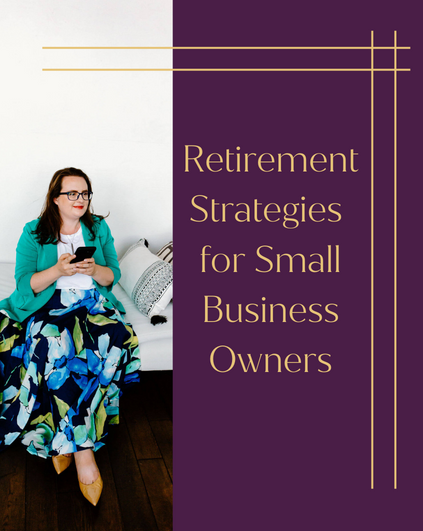
As a small business owner, you’ve built a successful business that has taken care of your family over the years. When it’s time to move on, how do you even do it? How do you extract yourself from the business so that your customers are taken care of and your family is compensated for the hard work you’ve done over the years to build up an enterprise?
Consider these retirement strategies for small business owners:
How Much Do You Need to Retire?
The first step in figuring out how to retire is to understand exactly what it’s going to take to retire and live comfortably for the rest of your life.
How much do you have saved now, and how does that compare to what you need? Do you need to sell the business for a certain amount to make it work?
If you are hoping this is your last business, you don’t want to walk away and then realize it’s not actually enough.
As a financial planner, I help my clients walk through this process so they have a clear picture on what it will take to retire comfortably.
Save for Retirement from Business Profits
Once you know how much it takes to actually retire from your business, we can now give you a target savings to get you to that number.
Sometimes, the money is already there and it’s just a matter of redirecting it. Other times, it’s a matter of increasing revenue.
As a business owner, you have a lot of levers to pull to generate more income. If you know you need to earn $50,000 more a year to get the job done — I’m confident you can figure it out.
Some business owners entrust their entire retirement to selling the business. However, markets are a tricky thing.
You could lose a top client right as the deal is closing. Whether it’s a global pandemic, supply chain issues, or interest rates rising, things happen in the world that business have to adapt to. Your timing might not line up with what’s happening in the world.
Only 20-30% of businesses actually sell. Even then, your business might not sell for the number you hope for or need if it’s the only asset you have.
If you’ve set yourself up to be comfortable in retirement by taking advantage of tax advantage retirement accounts along the way, selling your business can be more about your legacy rather than squeaking out a bare minimum number to survive in retirement.
Develop an Exit Strategy
Think about what a successful exit looks like. This means thinking now about how to build a business that someone else wants and has the ability to buy.
That means your business needs to be profitable and easy to run. I suggest working with a business consultant to clean up your books and streamline your operations so you can get the highest dollar amount for your business.
You might decide that you’d like to pass your business on to the next generation rather than selling to an external buyer. It can take a long time to nurture someone who can take your place.
Starting thinking now about how to grow the next generation, so you have the right people to sell to when you are ready to retire.
Get Income in Retirement
As an entrepreneur, you might walk away from the day to day in the business, but there are other ways to make the transition to retirement a bit smoother.
You could consider working part time in the business – helping out with business decisions and not working full time.
There are also ways to structure a business sale to minimize taxes and create income further into retirement.
With an installment sale over several years, it’s possible to significantly save on taxes.
What’s Next?
One of the biggest questions to answer is what will your next phase of life look like?
It takes hard work to build and grow your business. You are all in on it – but what happens when you aren’t any more?
I suggest exploring with your spouse and loved ones – what are you going to do to be excited to get out of bed in the morning?
When you have some ideas about what the next phase is going to look like, you feel confident your business is in good hands, it’s easier to transition away from the business you’ve built and move towards to what’s next.